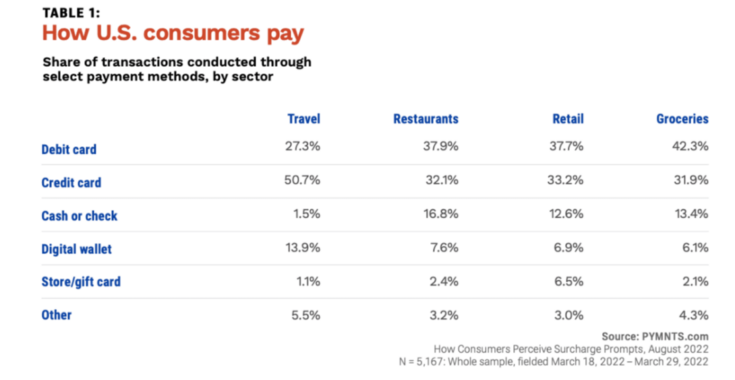When it comes to payment processing, organizations frequently find themselves at the crossroads of efficiency and dependability in the rich tapestry of financial transactions that define modern commerce. Acquiring banks plays a pivotal role in this landscape, functioning as facilitators that enable businesses to accept electronic payments from customers.
The significance of choosing the right acquiring bank cannot be overstated, as it directly impacts a company’s ability to seamlessly conduct transactions and foster customer trust.
Understanding Acquiring Banks
At the heart of electronic payment processing lies an acquiring bank, a financial institution responsible for managing and processing credit and debit card transactions on behalf of a merchant. This partnership facilitates the swift and secure transfer of funds from the customer’s account to the merchant’s account.
So, the role of an acquiring bank is essential as the intermediary, assuming the responsibility of validating transactions, managing risk, and ensuring that the entire process adheres to industry standards. Its role, therefore, extends far beyond mere transaction facilitation, encompassing a spectrum of services crucial for a seamless and secure payment ecosystem.

1. Regulatory Compliance: Navigating the Legal Landscape
Nowadays, staying abreast of regulatory changes is paramount. Acquiring banks operate within a framework governed by various financial regulations, and businesses must ensure that their chosen partner is well-versed in and compliant with these standards. From Payment Card Industry Data Security Standard (PCI DSS) requirements to regional and global financial regulations, a comprehensive understanding of the legal landscape is essential for both the acquiring bank and the business it serves.
2. Fee Structures: Unraveling the Complexities
Beyond the convenience of electronic payments lies the intricate web of fees associated with payment processing. Acquiring banks typically charge businesses a variety of fees, including transaction fees, interchange fees, and chargeback fees.
It is imperative for businesses to thoroughly understand the fee structures proposed by acquiring banks, ensuring that they align with the company’s financial strategy and goals. Transparent communication on fee structures sets the foundation for a sustainable and mutually beneficial partnership.
3. Risk Management: Mitigating Transactional Risks
In the world of financial transactions, risk is an inherent factor that requires adept management. The role of an acquiring bank extends to mitigating transactional risks by employing sophisticated risk management tools and strategies.
From fraud prevention measures to chargeback management, businesses should seek to acquire banks that prioritize robust risk management protocols. Proactive risk mitigation not only safeguards the financial interests of the business but also contributes to the overall reliability of the payment processing system.
4. Technology Integration: Seamless and Scalable Solutions
Smooth integration with state-of-the-art payment systems is essential at a time when technological breakthroughs influence the business landscape. Businesses can react to shifting consumer tastes and developing technology by acquiring banks that provide flexible and scalable solutions.
A forward-thinking acquiring bank serves as a strategic partner in keeping businesses at the forefront of the digital payment revolution, from contactless payments to mobile wallet connections.
5. Customer Support: A Pillar of Partnership
The success of any partnership hinges on effective communication and support. Businesses should prioritize acquiring banks that provide robust customer support, ensuring that assistance is readily available when needed. Whether addressing technical issues, clarifying financial statements, or resolving disputes, a responsive customer support team is a testament to the commitment of an acquiring bank to the success of the businesses it serves.
6. Scalability: Growing Together
The ability to grow together is not merely a convenience but a strategic imperative. An acquiring bank that understands and anticipates the evolving needs of its clients is an invaluable partner in the journey of expansion. Whether a business experiences seasonal peaks in transactions or endeavors to enter new markets, a scalable acquiring bank provides the infrastructure and support necessary for seamless growth.
This entails the capacity to handle increased transaction volumes without compromising on efficiency, security, or the overall quality of service. The symbiotic relationship between a business and its acquiring bank, characterized by mutual scalability, ensures that both entities can navigate the complexities of growth hand in hand, fostering a partnership that is not just transactional but geared for long-term success in an ever-evolving marketplace.
7. Reputation and Reliability: Building Trust Brick by Brick
In the interconnected world of commerce, reputation holds significant sway. Businesses should conduct thorough due diligence on the reputation and reliability of potential acquiring banks.
An established track record of reliability, ethical business practices, and a positive standing within the industry are indicators of an acquiring bank’s commitment to fostering trust—a cornerstone of enduring business relationships.
8. Data Security: Safeguarding Sensitive Information
In an age where data breaches make headlines, safeguarding sensitive information is non-negotiable. Acquiring banks serve as custodians of a vast trove of sensitive information, ranging from customer payment details to transaction histories. Safeguarding this data is not only a legal obligation but a critical element in building and maintaining trust. Businesses must prioritize partnerships with acquiring banks that demonstrate an unwavering commitment to data security. This commitment encompasses the implementation of cutting-edge encryption technologies, regular security audits, and strict adherence to industry best practices.
By fortifying their defenses against potential threats, acquiring banks not only protect the confidential information entrusted to them but also contribute significantly to the overall integrity of the electronic payment ecosystem.
A robust data security framework not only shields businesses from financial and reputational risks but also fosters a secure environment for customers, reinforcing their confidence in electronic transactions. In the interconnected landscape of modern commerce, data security is not just a feature—it’s a fundamental pillar upon which the trust and reliability of the entire payment processing system rests.
By understanding the multifaceted role of an acquiring bank and delving into the nuances of regulatory compliance, fee structures, risk management, technology integration, customer support, scalability, reputation, and data security, businesses can make informed decisions that lay the foundation for a resilient and enduring financial ecosystem. Choosing an acquiring bank wisely is not merely a transactional decision—it is a strategic choice that reverberates throughout the entire fabric of a business’s financial operations.


